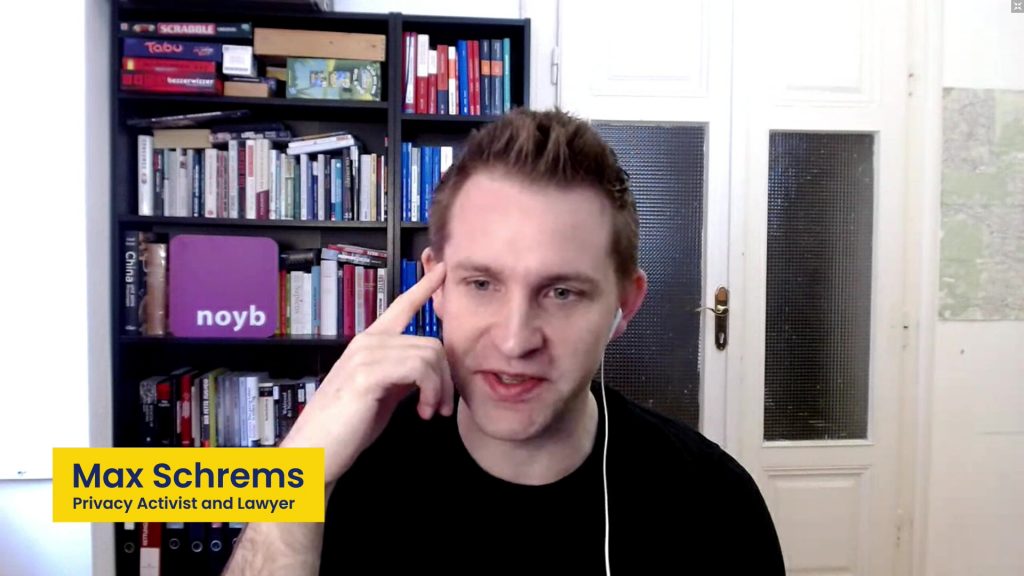Ed Snowden and Max Schrems discuss data protection and the Privacy Shield.
On October 26, 2021, the whistleblower Edward Snowden and the data protection activist Max Schrems discussed the subject of data protection. Over 3000 participants followed the 90-minute discussion.
Data protection in the EU on the one hand and data surveillance in the USA on the other? Check out the highlights in our recording here.
„The Data Protection Summit“
Recording of the discussion


Impressions of the discussion
We decided to let the two discuss them with each other rather than having a guided interview. The following screenshots show that the plan was successful:
The two discussion partners talk to each other about data protection in times of extensive surveillance measures in the USA.
We are excited to present this discussion. Edward Snowden and Max Schrems explain firsthand how the contradiction between EU data protection law and the surveillance measures of the USA is handled.








Highlights from the press clippings
The Frankfurter Allgemeine Zeitung reported on the “data protection summit”.
Horizont reports on the “fight against windmills in matters of data protection”
The online retailer news addresses the enforcement problem.
Edward Snowden
Whistleblower
Edward Snowden is a former CIA agent. In 2013, he revealed the dimension of the surveillance of Internet traffic by US intelligence agencies. He makes it clear that he doesn’t want to live in a world where everything he does and says is recorded. He is not willing to support such conditions, nor does he want to live under them.
We look forward to an exciting discussion. Edward Snowden and Max Schrems explain firsthand how the contradiction between EU data protection law and the surveillance measures of the USA is handled.
Max Schrems
privacy advocate
Max Schrems became Europe’s best-known data protection activist after the European Court of Justice (ECJ) declared the Safe Harbor Agreement and later the successor Privacy Shield to be invalid. At the time, he criticized the fact that US authorities could see personal data of EU citizens under US surveillance laws. This contradicts the EU data protection law (the GDPR and the Charter of Fundamental Rights of the EU).






